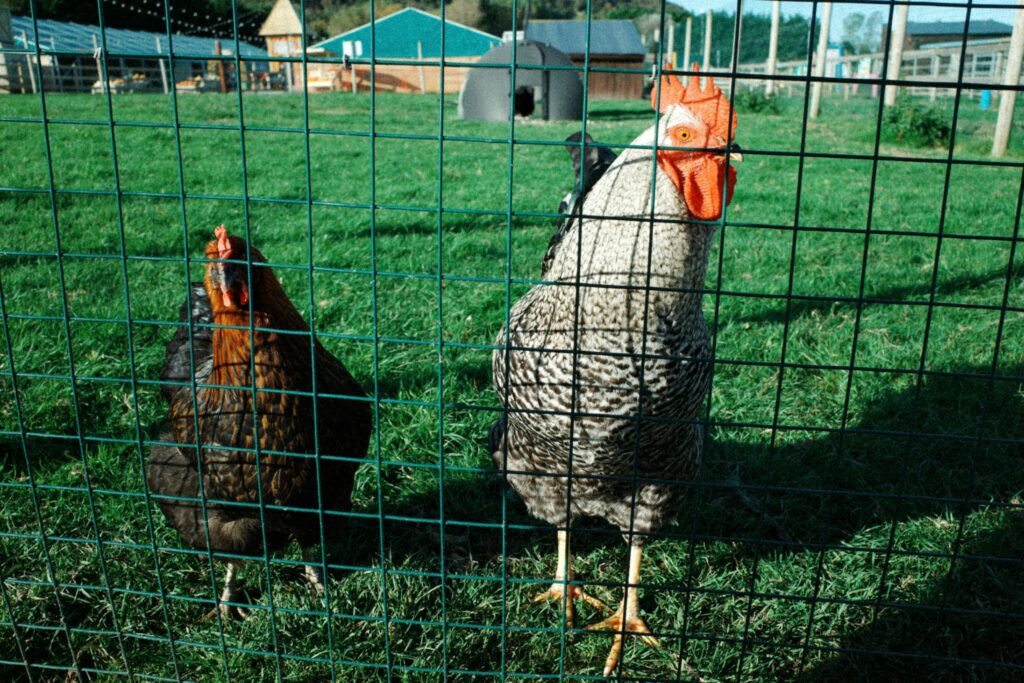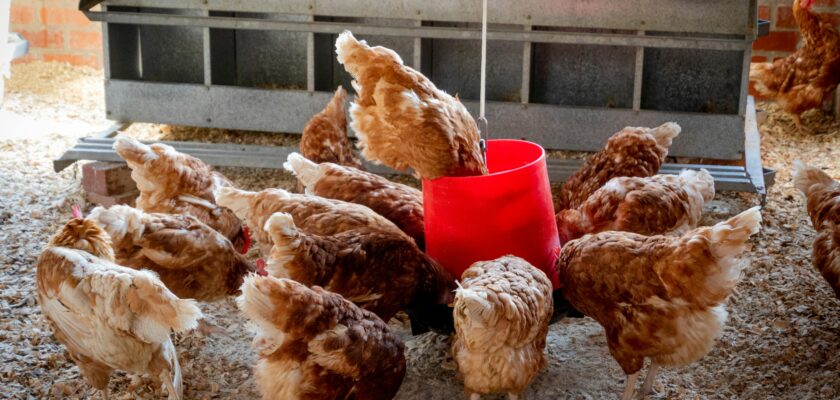Introduction: Why Raising Chickens is Rewarding
Backyard chicken keeping has surged in popularity — and for good reason. Whether you’re aiming for fresh, organic eggs or simply want to live more sustainably, caring for chickens offers unmatched satisfaction. They’re low-maintenance, fun to watch, and surprisingly affectionate.
Let’s explore how to care for chickens the right way — with 21 foolproof tips that even first-time chicken owners can follow.
Photo by Brett Sayles
Getting Started with Backyard Chickens
Choosing the Right Chicken Breed
Not all chickens are created equal. Some breeds lay more eggs, others are more docile, and a few are stunning show birds. Here’s a quick breakdown:
| Breed | Egg Production | Temperament |
| Rhode Island Red | High | Hardy and Active |
| Plymouth Rock | Moderate | Friendly |
| Silkie | Low | Gentle and Kid-Friendly |
| Leghorn | Very High | Flighty but Efficient |
Choose breeds based on your goals: egg production, meat, pets, or a mix.
Understanding Local Laws and Ordinances
Before bringing home your first hens, check your local zoning laws:
- Are chickens allowed in your area?
- Is there a limit on flock size?
- Are roosters banned?
Violating these could result in fines or forced rehoming.
Planning Your Flock Size
A good rule of thumb is 3–5 hens per household for regular egg supply. Keep in mind:
- Chickens are social animals. Never keep just one.
- Each hen lays ~4–6 eggs per week depending on breed and season.
Photo by Karolina Grabowska
Building a Safe and Comfortable Chicken Coop
Coop Size and Layout
Each chicken needs at least:
- 2–3 square feet inside the coop
- 8–10 square feet in the run
Include easy access doors, ramps, and predator-proof fencing.
Nesting Boxes and Roosting Bars
- 1 nesting box per 3–4 hens is ideal
- Add soft bedding like straw or pine shavings
- Roosting bars should be 2–4 inches wide and higher than nesting boxes
Ventilation and Lighting
Good airflow prevents disease. Include vents or windows and consider supplemental lighting during shorter winter days for continued egg laying.
Essential Supplies for Chicken Care
Feeders, Waterers, and Bedding
Invest in quality:
- Gravity feeders to reduce waste
- Heated waterers in cold climates
- Use pine shavings or straw for bedding—avoid cedar!
Cleaning Tools and Maintenance Gear
Must-haves include:
- Coop rake
- Gloves
- Disinfectant spray (non-toxic)
- Compost bin (for soiled bedding)
Feeding Your Chickens Right
What to Feed Chickens Daily
- Starter feed for chicks
- Grower feed for pullets
- Layer feed for hens (rich in calcium)
- Oyster shells and grit as needed
Provide constant access to clean water.
Treats and Supplements for Optimal Health
Safe treats (in moderation):
- Watermelon rinds
- Cooked rice
- Mealworms
- Herbs like oregano or mint
Avoid salty, moldy, or processed foods.
Managing Chicken Health and Wellness
Common Chicken Diseases and Prevention
Keep an eye out for:
- Marek’s Disease
- Coccidiosis
- Egg binding
Vaccinations and clean living environments help prevent most issues.
Parasite Control: Mites, Lice, and Worms
- Use diatomaceous earth in dust baths
- Rotate bedding weekly
- Do regular health checks for infestations
Daily, Weekly, and Seasonal Chicken Care Checklist
| Task | Frequency |
| Feed & water | Daily |
| Collect eggs | Daily |
| Check for signs of illness | Daily |
| Clean waterers/feeders | Weekly |
| Deep clean coop | Monthly |
| Add insulation/heat lamps | Seasonal |
Photo by Italo Melo
Socializing and Enriching Your Flock
Free Ranging vs. Enclosed Runs
- Free ranging: More natural behavior, but higher predator risk
- Enclosed runs: Safer, easier to control, but needs enrichment
Toys, Dust Baths, and Chicken Entertainment
Add logs, swings, mirrors, cabbage tetherballs, and dust bath areas. Chickens get bored too!
Egg Collection and Storage Tips
- Collect eggs twice a day in warm weather
- Store unwashed eggs on the counter for 1–2 weeks, refrigerated for longer shelf life
- Wash only before use to retain bloom protection
Winterizing the Coop and Cold Weather Tips
- Add straw insulation
- Prevent drafts, but don’t seal ventilation
- Use heated water bowls
- Avoid heat lamps unless temperatures are dangerously low
Handling Broody Hens and Raising Chicks
Broody hens can hatch fertile eggs or foster chicks. If not desired:
- Block off nesting boxes
- Use broody breaker cages
- Reduce light exposure
Protecting Chickens from Predators
Top threats:
- Raccoons
- Foxes
- Hawks
- Snakes
Use hardware cloth (not chicken wire), secure latches, and motion-sensor lights.
Sustainable Chicken Keeping and Composting
- Compost soiled bedding and chicken manure
- Use garden-safe feed scraps
- Integrate chickens into your garden rotation for pest control and fertilization
Troubleshooting Common Chicken Keeping Issues
- Not laying eggs? May be due to molting, age, or stress.
- Feather pecking? Could be boredom or protein deficiency.
- Messy coop? Try the deep litter method.
FAQs
1. How many chickens should a beginner start with?
Start with 3–6 hens. It’s enough to get eggs regularly and learn flock dynamics without being overwhelmed.
2. Can I keep chickens without a rooster?
Yes, hens lay eggs without a rooster. You only need a rooster if you want fertilized eggs or breeding.
3. Do chickens smell bad?
Not if maintained properly. Cleaning the coop regularly and using the right bedding controls odor.
4. What do chickens eat besides feed?
Fruits, vegetables, grains, insects, and occasional kitchen scraps. Balance is key to avoid health issues.
5. How long do chickens live?
On average, 5–10 years, depending on breed and care.
6. Can chickens handle cold weather?
Yes, most breeds are hardy. Insulate the coop and ensure water doesn’t freeze.

Photo by Lisa from Pexels
Conclusion
Raising chickens is more than just a hobby — it’s a lifestyle. By following these 21 foolproof tips, you’ll ensure your flock stays healthy, happy, and productive. From coop setup to feeding, health checks to enrichment, every step you take builds a stronger connection between you and your feathered friends.
Whether you’re an aspiring homesteader or a suburban backyard enthusiast, now’s the perfect time to start your chicken-keeping journey.
